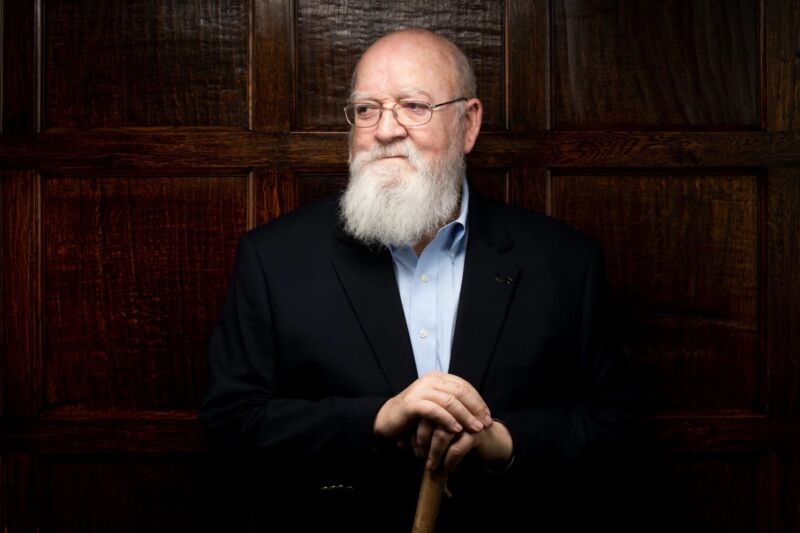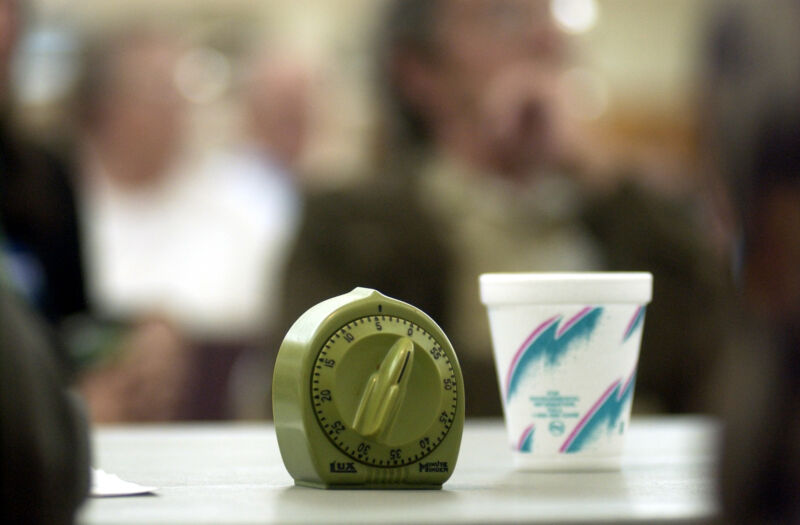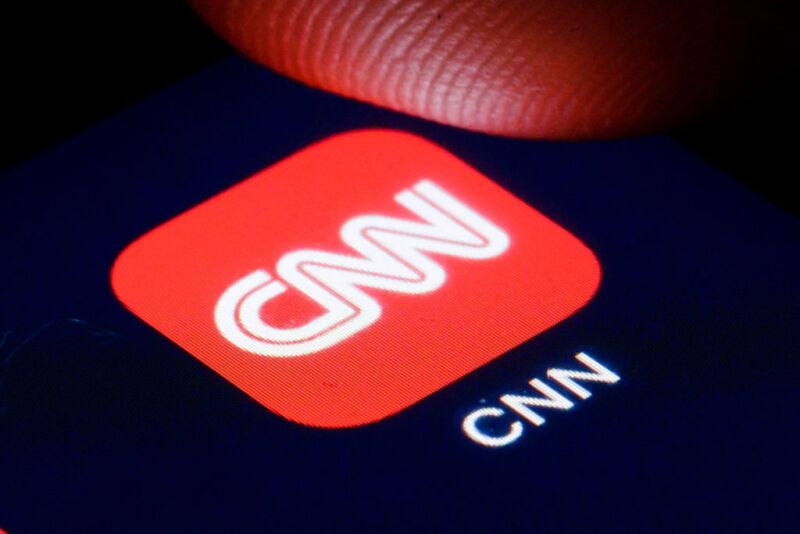U bent hier
Feed-aggregator
Internet Service Providers Plan to Subvert Net Neutrality. Don’t Let Them
In the absence of strong net neutrality protections, internet service providers (ISPs) have made all sorts of plans that would allow them to capitalize on something called "network slicing." While this technology has all sorts of promise, what the ISPs have planned would subvert net neutrality—the principle that all data be treated equally by your service provider—by allowing them to recreate the kinds of “fast lanes” we've already agreed should not be allowed. If their plans succeed, then the new proposed net neutrality protections will end up doing far less for consumers than the old rules did.
The FCC released draft rules to reinstate net neutrality, with a vote on adopting the rules to come the 25th of April. Overall, the order is a great step for net neutrality. However, to be truly effective the rules must not preempt states from protecting their residents with stronger laws and clearly find the creation of “fast lanes” via positive discrimination and unpaid prioritization of specific applications or services are violations of net neutrality.
Since “fast lanes” aren’t a technical term, what do we mean when we are talking about a fast lane? To understand, it is helpful to think about data traffic and internet networking infrastructure like car traffic and public road systems. As roads connect people, goods, and services across distances, so does network infrastructure allow for data traffic to flow from one place to another. And just as a road with more capacity in the way of more lanes theoretically means the road can support more traffic moving at speed1, internet infrastructure with more “lanes” (i.e. bandwidth) should mean that a network can better support applications like streaming services and online gaming.
Individual ISPs have a maximum network capacity, and speed, of internet traffic they can handle. To continue the analogy, the road leading to your neighborhood has a set number of lanes. This is why the speed of your internet may change throughout the day. At peak hours your internet service may slow down because a slowdown has occurred from too much requested traffic clogging up the lanes.
It’s not inherently a bad thing to have specific lanes for certain types of traffic, actual fast lanes on freeways can improve congestion by not making faster moving vehicles compete for space with slower moving traffic, having exit and entry lanes in freeways also allows cars to perform specialized tasks without impeding other traffic. A lane only for buses isn’t a bad thing as long as every bus gets equal access to that lane and everyone has equal access to riding those buses. Where this becomes a problem is if there is a special lane only for Google buses, or for consuming entertainment content instead of participating in video calls. In these scenarios you would be increasing the quality of certain bus rides at the expense of degraded service for everyone else on the road.
An internet “fast lane” would be the designation of part of the network with more bandwidth and/or lower latency to only be used for certain services. On a technical level, the physical network infrastructure would be split amongst several different software defined networks with different use cases using network slicing. One network might be optimized for high bandwidth applications such as video streaming, another might be optimized for applications needing low latency (e.g. a short distance between the client and the server), and another might be optimized for IoT devices. The maximum physical network capacity is split among these slices. To continue our tortured metaphor, your original six lane general road is now a four lane general road with two lanes reserved for, say, a select list of streaming services. Think dedicated high speed lanes for Disney+, HBO, and Netflix, but those services only. In a network neutral construction of the infrastructure, all internet traffic shares all lanes, and no specific app or service is unfairly sped up or slowed down. This isn’t to say that we are inherently against network management techniques like quality of service or network slicing. But it’s important that quality of service efforts be undertaken, as much as possible, in an application agnostic manner.
The fast lanes metaphor isn’t ideal. On the road having fast lanes is a good thing, it can protect more slow and cautious drivers from dangerous driving and improve the flow of traffic. Bike lanes are a good thing because they make cyclists safer and allow cars to drive more quickly and not have to navigate around them. But with traffic lanes it’s the driver, not the road, that decides which lane they belong in (with penalties for doing obviously bad faith things such as driving in the bike lane.)
Internet service providers (ISPs) are already testing their ability to create these network slices. They already have plans of creating market offerings where certain applications and services, chosen by them, are given exclusive reserved fast lanes while the rest of the internet must shoulder their way through what is left. This kind of networking slicing is a violation of net neutrality. We aren’t against network slicing as a technology, it could be useful for things like remote surgery or vehicle to vehicle communication which requires low latency connections and is in the public interest, which are separate offerings and not part of the broadband services covered in the draft order. We are against network slicing being used as a loophole to circumvent principles of net neutrality.
Fast Lanes Are a Clear Violation of Net NeutralityWhere net neutrality is the principle that all ISPs should treat all legitimate traffic coming over their networks equally, discriminating between certain applications or types of traffic is a clear violation of that principle. When fast lanes speed up certain applications or certain classes of applications, they cannot do so without having a negative impact on other internet traffic, even if it’s just by comparison. This is throttling, plain and simple.
Further, because ISPs choose which applications or types of services get to be in the fast lane, they choose winners and losers within the internet, which has clear harms to both speech and competition. Whether your access to Disney+ is faster than your access to Indieflix because Disney+ is sped up or because Indieflix is slowed down doesn’t matter because the end result is the same: Disney+ is faster than Indieflix and so you are incentivized to use Disney+ over Indieflix.
ISPs should not be able to harm competition even by deciding to prioritize incumbent services over new ones, or that one political party’s website is faster than another’s. It is the consumer who should be in charge of what they do online. Fast lanes have no place in a network neutral internet.
- 1. Urban studies research shows that this isn’t actually the case, still it remains the popular wisdom among politicians and urban planners.
Philosopher Daniel Dennett dead at 82

Enlarge / Daniel Dennett, a leading philosopher with provocative takes on consciousness, free will, and AI, has died at 82. (credit: Alonso Nichols/Tufts University)
World renowned philosopher Daniel Dennett, who championed controversial takes on consciousness and free will among other mind-bending subjects, died today at the age of 82.
(Full disclosure: This loss is personal. Dennett was a friend and colleague of my spouse, Sean Carroll. Sean and I have many fond memories of shared meals and stimulating conversations on an enormous range of topics with Dan over the years. He was a true original and will be greatly missed.)
Stunned reactions to Dennett's unexpected passing began proliferating on social media shortly after the news broke. "Wrenching news. He's been a great friend and incredible inspiration for me throughout my career," the Santa Fe Institute's Melanie Mitchell, author of Artificial Intelligence: A Guide for Thinking Humans, wrote on X. "I will miss him enormously."
Daniel Dennett Presents the 4 Biggest Ideas in Philosophy in One of His Final Videos (RIP)
A week ago, Big Think released this video featuring philosopher Daniel Dennett talking about the four biggest ideas in philosophy. Today, we learned that he passed away at age 82. The New York Times obituary for Dennett reads: “Espousing his ideas in best sellers, he insisted that religion was an illusion, free will was a fantasy and evolution could only be explained by natural selection.” “Mr. Dennett combined a wide range of knowledge with an easy, often playful writing style to reach a lay public, avoiding the impenetrable concepts and turgid prose of many other contemporary philosophers. Beyond his more than 20 books and scores of essays, his writings even made their way into the theater and onto the concert stage.”
Above, Dennett, a long-time philosophy professor at Tufts University, outlines the “four eras he evolved through on his own journey as a philosopher: classical philosophy, evolutionary theory, memetic theory, and the intentional stance. Each stage added depth to his perspective and understanding… Dennett’s key takeaway is a request for philosophers to reevaluate their methodologies, urging modern-day thinkers to embrace the insights offered by new scientific discoveries. By combining the existential and theoretical viewpoints of philosophers with the analytical and evidential perspective of scientists, we can begin to fully and accurately interpret the world around us.”
To help you delve a little deeper into Daniel Dennett’s world, we’ve also posted below a vintage TED video where the philosopher discusses the illusion of consciousness. We would also encourage you to explore the Dennett items in the Relateds below.
Related Content
Daniel Dennett Presents Seven Tools For Critical Thinking
How to Argue With Kindness and Care: 4 Rules from Philosopher Daniel Dennett
Hear What It Sounds Like When Philosopher Daniel Dennett’s Brain Activity Gets Turned into Music
It’s cutting calories—not intermittent fasting—that drops weight, study suggests

Enlarge (credit: Getty | David Jennings)
Intermittent fasting, aka time-restricted eating, can help people lose weight—but the reason why may not be complicated hypotheses about changes from fasting metabolism or diurnal circadian rhythms. It may just be because restricting eating time means people eat fewer calories overall.
In a randomized-controlled trial, people who followed a time-restricted diet lost about the same amount of weight as people who ate the same diet without the time restriction, according to a study published Friday in Annals of Internal Medicine.
The finding offers a possible answer to a long-standing question for time-restricted eating (TRE) research, which has been consumed by small feeding studies of 15 people or fewer, with mixed results and imperfect designs.
CNN, record holder for shortest streaming service, wants another shot

On March 29, 2022, CNN+, CNN's take on a video streaming service, debuted. On April 28, 2022, it shuttered, making it the fastest shutdown of any launched streaming service. Despite that discouraging superlative, CNN has plans for another subscription-based video streaming platform, Financial Times (FT) reported on Wednesday.
Mark Thompson, who took CNN's helm in August 2023, over a year after CNN+'s demise, spoke with FT about evolving the company. The publication reported that Thompson is "working on plans for a digital subscription streaming service." The executive told the publication that a digital subscription, including digital content streaming, is "a serious possibility," adding, "no decisions had been made, but I think it’s quite likely that we’ll end up there."
CNN++, or whatever a new CNN streaming package might be named, would not just be another CNN+, per Thompson.
Long-lost model of the USS Enterprise returned to Roddenberry family

Enlarge / This mysterious model appeared on eBay with little fanfare. (credit: eBay)
The first-ever model of Star Trek's USS Enterprise NCC-1701 has been returned to the Roddenberry family, according to an ABC News report.
The three-foot model was used to shoot the pilot and credits scene for Star Trek's original series in the 1960s and was used occasionally for shots throughout the series. (Typically, a larger, 11-foot model was used for shots after the pilot.) The model also sat on series creator Gene Roddenberry's desk for several years.
It went missing in the late 1970s; historians and collectors believe it belonged to Roddenberry himself, that he lent it to a production house working on Star Trek: The Motion Picture, and that it was never returned. Its whereabouts were unknown until last fall, when a listing for a mysterious model of the Enterprise appeared on eBay.
Beiträge für bayerische Kirchengeschichte 1895-1925 online
Wikisource-Benutzer Haendelfan hat den gesamten Erscheinungsverlauf zugänglich gemacht, wofür auch hier gedankt sei:
https://de.wikisource.org/wiki/Beitr%C3%A4ge_zur_bayerischen_Kirchengeschichte
Österreichische Akademie der Wissenschaften: Sitzungsberichte nur bis 1917 digitalisiert
https://viewer.acdh.oeaw.ac.at/viewer/!image/PH_179_1917/1/LOG_0003/
Siehe auch
https://de.wikisource.org/wiki/%C3%96sterreichische_Akademie_der_Wissenschaften
KI singt Kirchenarchivbenutzungsordnung ein
Zu den amüsantesten Beiträgen der Rubrik Archivrecht gehört sicher dieser:
Dotternhausen: “Das Archiv ist Erbe und Fingerabdruck der Gemeinde”
Protest gegen den Plan des Berliner Senats, das ehemalige Sport- und Erholungszentrum in Friedrichshain abzureißen
https://www.sueddeutsche.de/kultur/sez-abriss-berlin-1.6556850 (Paywall)
Universitätsarchiv Frankfurt ist ein Vorreiter der digitalen Langzeitarchivierung
‚Discoverability‘ in der Strategie der National Archives UK
Urteil in Prag: KI-generiertes Bild kann von jedermann frei genutzt werden
Speyer, Worms und Mainz digitalisieren Handschriften aus dem Mittelalter
https://idw-online.de/de/news832274

Bislang sind 11 Titel verfügbar:
https://gutenberg-capture.ub.uni-mainz.de/mittelalterlichehand/nav/index/all
Die juristischen Handschriften der Codices Palatini Latini in der Vatikanischen Bibliothek (Cod. Pal. lat. 621–813)
Der neue Handschriftenkatalog ist Open Access:
https://doi.org/10.11588/heibooks.1113
Cpl 685: bessere Informationen zu Johannes Spenlin in https://archivalia.hypotheses.org/171704










































































































![Reference manager - [Onderhoud aantekeningen]](https://labyrinth.rienkjonker.nl/sites/default/files/styles/medium/public/Reference%20manager%20v3%20-%20%5BOnderhoud%20aantekeningen%5D%2014-2-2010%20102617_0.jpg?itok=OJkkWhxY)
![Reference manager - [Onderhoud aantekeningen]](https://labyrinth.rienkjonker.nl/sites/default/files/styles/medium/public/Reference%20manager%20v3%20-%20%5BOnderhoud%20aantekeningen%5D%2014-2-2010%20102628.jpg?itok=CUvhRRr7)
![Reference manager - [Onderhoud bronnen] - Opnemen en onderhouden](https://labyrinth.rienkjonker.nl/sites/default/files/styles/medium/public/Reference%20manager%20v3%20-%20%5BOnderhoud%20bronnen%5D%2014-2-2010%20102418.jpg?itok=d7rnOhhK)
![Reference manager - [Onderhoud bronnen]](https://labyrinth.rienkjonker.nl/sites/default/files/styles/medium/public/Reference%20manager%20v3%20-%20%5BOnderhoud%20bronnen%5D%2014-2-2010%20102433.jpg?itok=CgS8R6cS)
![Reference manager - [Onderhoud bronnen]](https://labyrinth.rienkjonker.nl/sites/default/files/styles/medium/public/Reference%20manager%20v3%20-%20%5BOnderhoud%20bronnen%5D%2014-2-2010%20102445_0.jpg?itok=4oJ07yFZ)
![Reference manager - [Onderhoud bronnen]](https://labyrinth.rienkjonker.nl/sites/default/files/styles/medium/public/Reference%20manager%20v3%20-%20%5BOnderhoud%20bronnen%5D%2014-2-2010%20102500.jpg?itok=ExHJRjAO)
![Reference manager - [Onderhoud bronnen]](https://labyrinth.rienkjonker.nl/sites/default/files/styles/medium/public/Reference%20manager%20v3%20-%20%5BOnderhoud%20bronnen%5D%2014-2-2010%20102524.jpg?itok=IeHaYl_M)
![Reference manager - [Onderhoud bronnen]](https://labyrinth.rienkjonker.nl/sites/default/files/styles/medium/public/Reference%20manager%20v3%20-%20%5BOnderhoud%20bronnen%5D%2014-2-2010%20102534.jpg?itok=cdKP4u3I)
![Reference manager - [Onderhoud thema's en rubrieken]](https://labyrinth.rienkjonker.nl/sites/default/files/styles/medium/public/Reference%20manager%20v3%20-%20%5BOnderhoud%20themas%20en%20rubrieken%5D%2020-9-2009%20185626.jpg?itok=zM5uJ2Sf)













![Reference manager - [Raadplegen aantekeningen]](https://labyrinth.rienkjonker.nl/sites/default/files/styles/medium/public/Reference%20manager%20v3%20-%20%5BRaadplegen%20aantekeningen%5D%2020-9-2009%20185612.jpg?itok=RnX2qguF)
![Reference manager - [Relatie termen (thesaurus)]](https://labyrinth.rienkjonker.nl/sites/default/files/styles/medium/public/Reference%20manager%20v3%20-%20%5BRelatie%20termen%20%28thesaurus%29%5D%2014-2-2010%20102751.jpg?itok=SmxubGMD)
![Reference manager - [Thesaurus raadplegen]](https://labyrinth.rienkjonker.nl/sites/default/files/styles/medium/public/Reference%20manager%20v3%20-%20%5BThesaurus%20raadplegen%5D%2014-2-2010%20102732.jpg?itok=FWvNcckL)
![Reference manager - [Zoek thema en rubrieken]](https://labyrinth.rienkjonker.nl/sites/default/files/styles/medium/public/Reference%20manager%20v3%20-%20%5BZoek%20thema%20en%20rubrieken%5D%2020-9-2009%20185546.jpg?itok=6sUOZbvL)
![Reference manager - [Onderhoud rubrieken]](https://labyrinth.rienkjonker.nl/sites/default/files/styles/medium/public/Reference%20manager%20v3%2020-9-2009%20185634.jpg?itok=oZ8RFfVI)

![Reference manager - [Onderhoud aantekeningen]](https://labyrinth.rienkjonker.nl/sites/default/files/styles/medium/public/Reference%20manager%20v3%20-%20%5BOnderhoud%20aantekeningen%5D%2014-2-2010%20102603.jpg?itok=XMMJmuWz)


































































